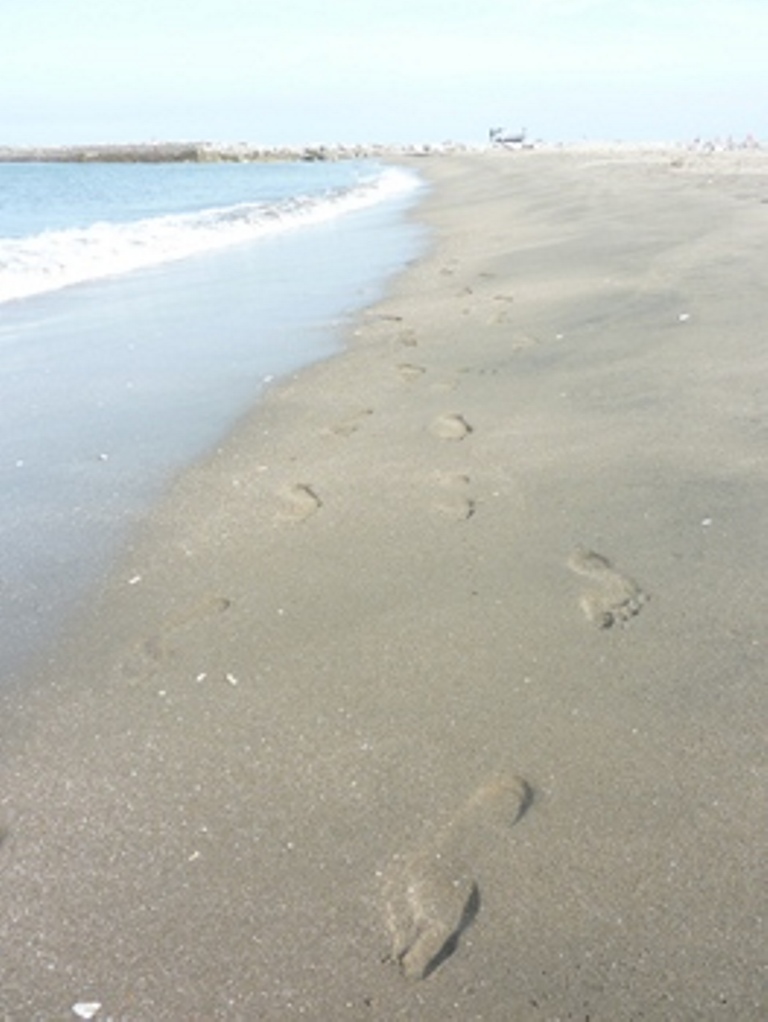 I went to the seaside in Japan’s Kashima City in late August. Playing in the seaside was fun. But it also reminded me of how weak humans are. When I was swimming in the sea, the waves were not high but still powerful. The tide was flowing north. It is hard to get out of the tide: I was swept along by it without realizing it. In the night, standing on the beach was a good chill out, but sometimes it wasn’t… It was all dark and the sea was black. Even the sound of waves was threatening.
I went to the seaside in Japan’s Kashima City in late August. Playing in the seaside was fun. But it also reminded me of how weak humans are. When I was swimming in the sea, the waves were not high but still powerful. The tide was flowing north. It is hard to get out of the tide: I was swept along by it without realizing it. In the night, standing on the beach was a good chill out, but sometimes it wasn’t… It was all dark and the sea was black. Even the sound of waves was threatening.
So, the sea is as dangerous as it is fun. With the memory of tsunami in 2011 fresh, Japanese people feel so. But that doesn’t prevent accidents in the sea. According to the Japan Coast Guard, the number of marine accidents in Japan has kept more than 400 for the last five years[*]. The same accident happened in other countries. A report published by the Consumer Safety Institute in the Netherlands in 2003 found that marine accidents had been increasing in Europe[†].
Why? It could be because leisure is barbaric like sport as Thorstein Veblen, an American sociologist, says in his The Theory of the Leisure Class. From his point of view, when we are doing leisure activities, we are violent and crazy. He seems to regard those things as primitive culture. But it is probably not the case. If we were primitive man, we would not underestimate the sea because of the fear of nature. Thus, we were unlikely to cause the accident. But in reality marine accidents often happen.
Rather, the reason why the accidents haven’t been decreased may be modern. With science and technology developing rapidly, we may be thinking that we can control nature, hence safe. Trust in technology removes constraint. That’s good unless we trust it too much. It seems that technology doesn’t always guarantee safety. Accidents of both pleasure boats and diving are increasing in Japan. The main cause is machine trouble. The Dutch report, too, notes that many accidents of diving “seem to be caused by technical failures.”
All this poses question about marine leisure and safety. To what extent should it be safe? It’s not an easy question since challenge and risk are integral to leisure. Technology helps if we use carefully. We may need more regulations at the expense of freedom. For example, more limited swimming areas with more lifeguards.
But, if they didn’t work, should marine leisure be banned? Based on my experiences from Kashima city, I don’t think so. It has an important function for society: it makes us consider about the coexistence of man and nature. We talk and share experiences in the sea. This will change our mind and behaviour, making people humble. It may help prevent outdoor accidents. Eventually, we could produce an ecological society. Despite the fact that accidents in the sea are not falling, this seems to be happening slowly in Japan. Thus, we need marine leisure.
[*] The Japan Coast Guard http://www.kaiho.mlit.go.jp/marine/figure/h24jigokouhou.pdf
[†] “Risks of certain sports and recreational activities in the EU” by C. van der Sman, A. van Marle, J. Eckhardt and D. van Aken http://ec.europa.eu/consumers/cons_safe/news/rep_risk_sport_en.pdf

Ryo Kubota is a staff writer at Transpheric Management in Tokyo as well as a freelance writer. He has covered Sports for the Nippon Newspaper Company in Tokyo and teaches at a private tutoring school in Iruma, Japan. Having studied in both Tokyo and England in the areas of sociology, he has a keen interest in the world at large.








